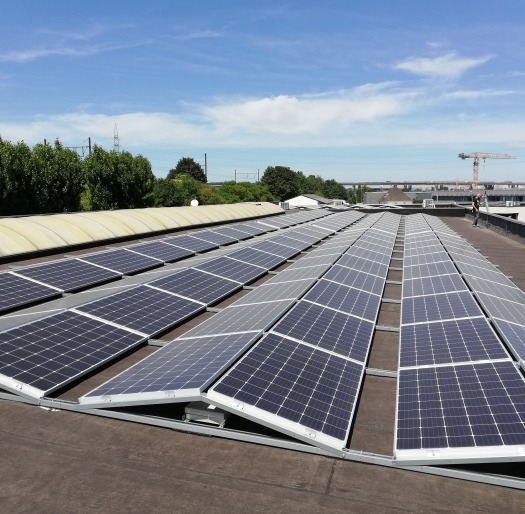
Specifications
Angles
SolarSpeed east-west is available with an angle of 12.5°.
Spacing
SolarSpeed east-west is sold as standard with a 12.5° angle and 2300mm spacing. Other spacing dimensions are available upon request.
Landscape & Portrait
The east-west frame is sold in landscape as standard, but portrait is also available upon request.
Compatible with any solar panel
A suitable structure can be supplied depending on the panel widths used (>1010mm, 1010-1055mm, 1055-1075mm). This means that both 60-cell as well as 72-cell panels can be installed in east-west configuration.
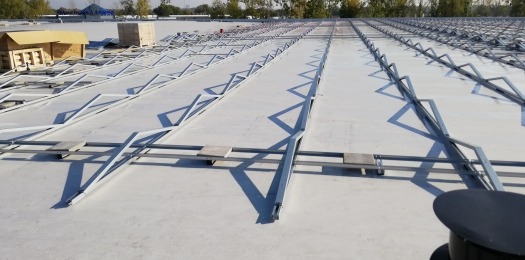
Ballast with L-profiles
- On the outside of an east-west installation, ballast may only be installed with the use of L-profiles.
- The central support prevents the L-profiles from bending, and the latter are secured with self-tapping screws.
- These L-profiles can be used to create an additional connection between the base units to make the installation even more solid and sound.
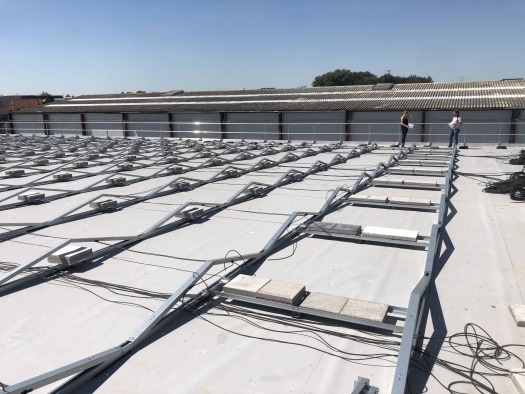
Ballast with Ballast Holders
L-profiles must be used on the outside of the east-west installation. However, at the centre of the installation, where there is less ballast, the ballast can be provided with the use of ballast holders.
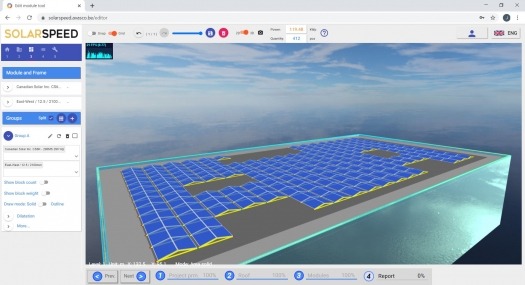
SolarSpeed Calculator
Calculate your projects quickly and efficiently with the use of our free online software!
Decide upon the location and the environment, draw a sketch of the roof, select the panels and the installation frame, and after drawing out the PV installation, our software will calculate the correct ballast plan.
All the information regarding the roof loads, the installation structure and position is recorded into a clearly laid out report, including a complete list of components and the materials necessary for your project.
Three
Types of
SolarSpeed
To protect the roof covering, there are three different types of base unit: a protective rubber pad, PP foot or concrete foot.
Achieving optimum support for your project will depend on the position, the slope of the roof, the type of roof covering, etc.
We can always help you to select the most suitable type for your particular installation.
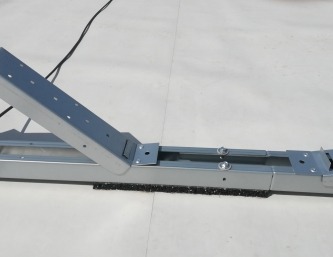
Protective rubber pads
The base units are fitted with protective rubber pads as standard.
The pads are 15mm thick, they ensure good drainage and they also provide good protection for the roof covering.
For PVC roofs, the protective rubber pads always include an aluminium substrate.
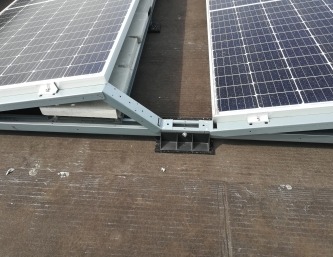
PP feet
By incorporating PP feet, the installation will be slightly raised from the roof surface. This helps to further improve the drainage and also compensates for any minor unevenness of the roof surface.
This also reduces the point loads on the roof given that the weight of the installation will be distributed over a wider surface area.
If PP feet are used, there is the possibility, upon request, of including an extra protective rubber pad to provide extra protection for the roof covering.
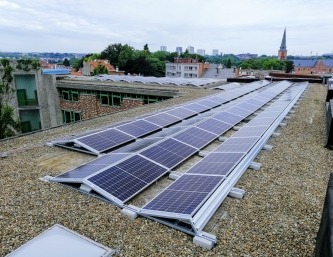
Concrete feet
Avasco concrete feet are extremely suitable for gravel roofs as the gravel only needs to be removed in few places. The frames are supported by and are secured to the concrete feet so the work can be performed above the layer of gravel.
Given that the structure is secured to the concrete feet, the latter therefore also form part of the necessary ballast for your installation. This therefore reduces the number of normal ballast tiles required.
To give the roof covering extra protection, the concrete feet are always fitted onto a protective rubber pad.
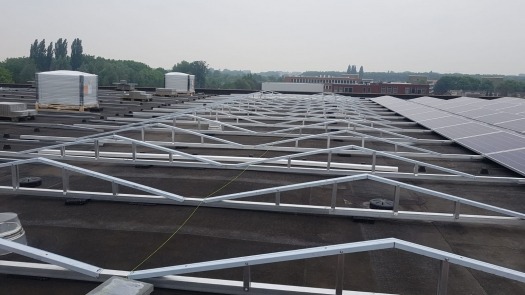
Portrait configuration
Depending on the dimensions and the strength of the roof structure, there is the possibility of opting for a portrait configuration.
Depending on the size of the panel (60 or 72 cells), SolarSpeed East-West Portrait can be supplied with spacing that is tailor-made to fit the size of the panel.
SolarSpeed East-West Configuration
SolarSpeed east-west configuration with ballast on L-profiles
More info.?
Do you have an actual project in mind or would you like more information about the SolarSpeed east-west configuration?
Then don’t hesitate to contact us!
